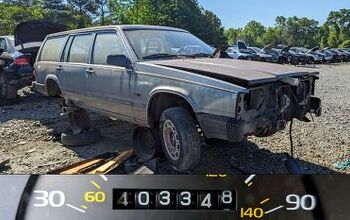Toyotas Tests Ways To Exterminate The Blandmobile

Where would market research companies be without their sugar daddies, the car companies? There is no consumer product that is more expensive than a car, and nowhere is the amount of research money spent by unit sale higher than in the car industry. Research for a new car can be as crude as a few pictures and a questionnaire, or it can be something that is appropriately called a “clinic study,” with customers as lab rats.
All these methods have a flaw: The human factor. Data collected must be aggregated and analyzed by someone. He or she can twist the data however they like. That led to a famous quote by a long deceased former sales director at Volkswagen, who said: “I only believe in research I forged myself.”
Something had to be done, and Toyota is doing it. According to The Nikkei [sub], Toyota “is taking a new tack in car development: listening directly to potential customers rather than relying on market trend data, a move prompted by changing customer preferences.”
What they do is give customers test drives. While they drive, someone in the other seat chats with the driver. That someone in the other seat is an employee of Toyota Marketing Japan Co., a newly established subsidiary and the brainchild of Toyota CEO Akio Toyoda. No more sugar daddy. Toyota keeps the sugar in-house.
The car is outfitted with small microphones that pick up casual comments from visitors when they get inside the vehicles. No questionnaires, no clinical environment, no interpretation. Executives get reactions straight from the customer’s mouth.
Says the Nikkei: “This is part of an effort to break the reputation Toyota cars have as lacking excitement. The company is seeking to create “surprise elements” in its new models.”
So maybe, by way of the built-in microphones, we’ll get something else than the blandmobiles that made Toyota infamous and successful. Whether that’s a good or a bad thing remains to be seen.

Bertel Schmitt comes back to journalism after taking a 35 year break in advertising and marketing. He ran and owned advertising agencies in Duesseldorf, Germany, and New York City. Volkswagen A.G. was Bertel's most important corporate account. Schmitt's advertising and marketing career touched many corners of the industry with a special focus on automotive products and services. Since 2004, he lives in Japan and China with his wife <a href="http://www.tomokoandbertel.com"> Tomoko </a>. Bertel Schmitt is a founding board member of the <a href="http://www.offshoresuperseries.com"> Offshore Super Series </a>, an American offshore powerboat racing organization. He is co-owner of the racing team Typhoon.
More by Bertel Schmitt
Latest Car Reviews
Read moreLatest Product Reviews
Read moreRecent Comments
- 3-On-The-Tree I was disappointed that when I bought my 2002 Suzuki GSX1300R that the Europeans put a mandatory speed limiter on it from 197mph down to 186mph for the 2002 year U.S models.
- ToolGuy Did anyone catch that Boeing Starliner launch earlier tonight?
- Lou_BC This is less harmful to one's re-election chances than harder driver's licence exams and making people re-test.
- 28-Cars-Later Probably should investigate the buyers too, maybe a basic psych eval?
- 28-Cars-Later "Despite nobody really digging the moniker, Honda has told Autocar that it only plans on changing the name of the model in China (as part of a more comprehensive facelift) because that’s where they’re having the most trouble and anticipated the largest sales volumes.""Customers in China just can’t pronounce it,” explained the source."So the Chinese are class A customers but frack the rest of y'all we don't care what you think or can understand?


































Comments
Join the conversation
I'm reading a book by Susan Scott and I can use a quote from there to describe what the results of these focus groups or clinics really are:"The Complete Guide to the Fricking Obvious". To many it's still a question why companies still spend large amounts of money now, in 2010, on these ineffective methods. The internet, with all the forums available 24/7 for free, is a huge resource of consumer comments, existing customers, potential customers, brand and model related of independent (like TTAC). The internet made the clinics completely irrelevant but companies still use them for a different reason. If a model is not successful in a way or another (like low sales) the clinic report is used as an excuse. The xB case, mentioned by JuniorMint, is the perfect example. If engineering is a precise science, design is very subjective and designers have to have a good gut feel. But that's not all, designers create the design but they don't approve it, it's the top management approving it. They also have to have a good gut feel.
Toyota should just talk to people who buy Hyundais.